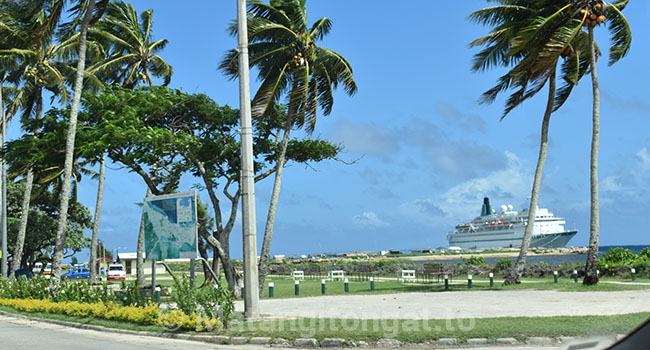
Tonga is among seven Pacific Island Countries, facing strong headwinds from COVID-19, that will see significant declines in their GDP growth reported for 2020, says a new World Bank report. Recovery in 2021 remains uncertain.
“The COVID-19 pandemic has contracted global economic activities, pushing many countries into economic recession,” it stated. “PICʼs are no exception. With high exposure to global demand through tourism, commodities and remittances, PICs are expected to experience a steeper decline in GDP growth in 20202 compared to emerging market developing economies..”
This includes Fiji, Kiribati, Papua New Guinea PNG, Samoa, Solomon Islands, Tonga, and Vanuatu.
The report on labour mobility in the Pacific, “Pacific Island Countries in the Era of COVID-19”, was published by the World Bank in December 2020.
It stated that tourism-dependent PICs have also seen a major blow to their economies.
Fiji, Vanuatu, and Samoa saw a near stop in international visitor arrivals during several months of the year.
Efforts to revive domestic tourism appear to have little impact on the tourism sector, and such contraction in tourism has resulted in unemployment.
Tourism-dependent
“In tourism-dependent Fiji, Samoa and Vanuatu, international tourism has effectively ceased and this trend is likely to continue with COVID-19 controls in place.”
In Vanuatu, for instance, the number of employees in the tourism industry contracted by about 64 percent during the COVID-19 crisis (Vanuatu Tourism Office, April 2020). There have also been job losses in other tourism-related sectors across PICs such as the retail and food service industry.
Disruptions in donor-financed infrastructure activities, lower commodity prices, and some reductions in inward remittance flows have also contributed to the economic downturn, although lower oil import prices have offset some of these impacts to an extent. Overall, the pandemic poses tremendous downside risks to domestic labor markets.
Companies are not recruiting, particularly in the tourism and services sectors.
Papua New Guinea
For PNG, job advertisements contracted by 76 percent in May compared to February 2020. Although job vacancy data included few low-skilled jobs (a limitation of such datasets in low- and middle-income contexts), the share of semi-skilled job postings dropped substantially as a result of COVID-19, reflecting a disproportionate impact on jobs that require face-to- face interaction or which cannot be undertaken remotely.
Low numbers of ICT job vacancies indicate potential obstacles to the digitalization of work seen in other regions. Mismatches between demand and supply of skilled labour, which have been exacerbated by the impacts of COVID-19 on labour demand, point to the continued importance of investment in skills development.
Policy responses
The World Bank reported stated that there are a range of policy responses which PICs can potentially use to help mitigate the impacts of COVID-19 on employment and livelihoods.
“In the immediate-term, government support to affected populations is a priority. Support to both firms and workers can help cushion employment impacts through: the provision of liquidity to firms to sustain their businesses (as undertaken in PNG and Tonga).
“There are measures aimed at helping firms to retain cash ows (e.g., tax or import duty relief in Samoa, PNG and Solomon Islands, and deferred social security contributions in Fiji); and support for retention of workers (e.g., wage subsidies in Vanuatu and paid sick leave in Fiji).
“Social assistance measures can help households and unemployed individuals more directly through: cash transfers (Australia, Tuvalu); scaling up existing food security programs (Fiji); cash transfers targeting informal workers (Fiji and Tonga); and unemployment benefits for formal sector workers (such as in Fiji and PNG, where these have drawn on superannuation savings).
“In the medium and long-term, the focus should be on ensuring employment of those who are of working age and seeking work. Training and employment services are especially important. Policy responses that can be considered include: subsidization of reskilling and upskilling (e.g., through credit and tax incentives for employers to upskill their employees, especially in the case of micro, small and medium businesses), work- study dual training systems, apprenticeship schemes, and temporary wage subsidies for low-skilled unemployed (especially the so-called ‘COVID-19 generation’ which is lacking in work experience).
“PIC governments should also focus on expanding labour mobility opportunities for their citizens, through training to overseas standards, investment in outreach activities, and sound management of sending country arrangements – including management of any COVID-19 related requirements.
It recommended that in the medium and long-term, the focus should be on ensuring employment of those who are of working age and seeking work. Training and employment services are especially important.
Australian Pacific Training Coalition
The Australian Pacific Training Coalition (APTC) is funded by the Australian government with the aim of improving technical and vocational education in the Pacific region. The center offers 21 courses across seven disciplines in five PICs: Fiji, PNG, Samoa, Solomon Islands, and Vanuatu. Upon completion, participants may receive Certificate Level II, up to diplomas. These certificates and diplomas are recognized by the Australian Qualifications Framework.
Apart from the technical competencies, the center offers a labour mobility track, wherein participants are taught skills that may be needed by overseas employers, including topics on financial literacy and personal well-being among others.
The APTC is also partnering with the Pacific Labour Facility (PLF) of the Australian government to provide workers to businesses located in rural and regional Australia. This provides Pacific Islanders with a gateway to the Pacific Labour Scheme (PLS) and the Seasonal Work Programme (SWP) o ered by the Australian government.
To date, the APTC offers the following courses across over campuses. All of the courses offered have a designated Level III Certificate, which is Level 3 according to the Australia Qualification of the ANZSCO Skills Level. To achieve Level 3 status, however, the participant should also have two years of on-the-job training apart from the certificate.



